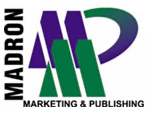Earlier this week, an interesting Substack piece by a writer named Michele Catalano generated a great deal of attention on social media.
The post – titled “the right to way ‘writer’” – dealt with how writers often feel some level of insecurity about referring to themselves as writers.
To some degree, this is due to the broad category of “writer” that can include so many things.

But generally speaking, you don’t have to publish the great American novel in order to refer to yourself as a writer. Magazine writers…newspaper writers…bloggers…and certainly copywriters are all writers in one form or another.
So you shouldn’t have to apologize when someone asks what you do for a living and you say “writer,” no matter what you’ve written or typically produce.
As many have pointed out, no other profession has a similar issue. Plumbers don’t worry about saying they’re a plumber if they’ve only done residential plumbing and not commercial. Teachers don’t hesitate to call themselves teachers if they’ve only been in a classroom for a few years.
I bring this up not to talk about imposter syndrome and how it can mess with the heads of copywriters no matter their level of experience…
Instead I bring it up because it reminded me of another question. One that is vitally important to copywriters and marketers.
Can you answer this question honestly and completely: What are you selling?
Are you in the financial newsletter business? The nutritional supplement business? The investor awareness business?
No matter if you’re writing the copy for those products or if you’re handing the marketing…the answer to the question “what are you selling?” is one you have to get right or else you have no chance in the marketplace.
And here’s the thing.
You’re not selling a newsletter. You’re not selling a nutritional supplement. And you’re certainly not selling a stock.
As you might have guessed (especially if you’re a copywriter) I’m referring to the “benefit of the benefit” here.
If you’re working on a financial newsletter promotion, you can’t simply sell the newsletter. As my one-time mentor, Bill Bonner, said many times, “No one has ever gotten up in the morning and thought to themselves, ‘Oh no…I’m almost out of newsletters.’”

So your promotion can’t focus on the newsletter itself. (And you know this already.)
You have to go so much deeper. You’re not selling an information product. You’re not even selling the guru’s track record when it comes to producing the information.
Instead, you’re selling the results. You’re selling the idea of how dramatically the prospect’s life will improve once they become a subscriber. Or, in the case of a fear-based promotion you have to convince the prospect that the only way to avoid certain, imminent disaster is to follow the advice of the editor you’re promoting.
The same thing goes for nutritional supplements. No one really wants the supplements.
They want to feel young again…or live a pain-free life…or solve whatever problem is ailing them (or could soon become an issue in their life.)
This can be trickier when it comes to investor awareness, because at the end of the day you are trying to position a company in the best possible light. And the reader is typically aware that the information being provided is about a potential investment opportunity.
But that doesn’t change the fundamental approach. The investment being recommended has to be good enough – or have enough demonstrable potential – that a convincing case can be made that an investment will help improve the life of the prospect.
It’s an obvious point – but an important one. You must be able to dive deep when answering the question “What are you selling?” – because if you fail to do so, then you likely won’t be selling anything at all.
Jody Madron is a results-oriented copywriter with 30 years of breakthrough marketing experience. To learn how Jody can deliver results-boosting copy — ahead of your deadline — visit www.MadronMarketing.com.

